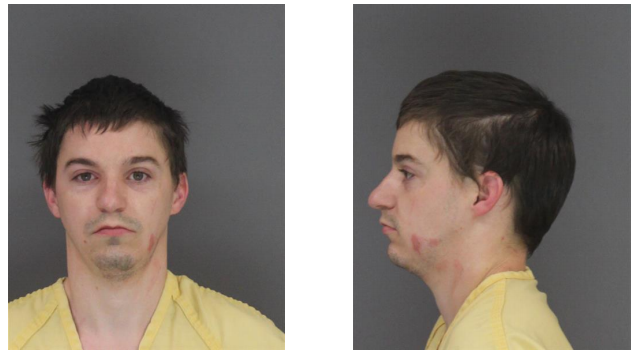GREENWOOD -- A Sebastian County man was sentenced to 80 years in prison Wednesday after he was convicted of first-degree murder and first-degree attempted murder.
A Sebastian County Circuit Court jury of six women and six men deliberated for two hours Wednesday afternoon before returning with verdicts against Aaron Cutsinger in the Sept. 19, 2015, death of 23-year-old Leanora Rippy of Boles in Scott County and the injury of her toddler son Slayde Carey.
After deliberating for another hour, the jury returned with a recommendation that Cutsinger be sentenced to 40 years for the murder charge, 30 years for the attempted murder charge and an additional 10 years for committing murder in the presence of a child, with the sentences to run consecutively.
Circuit Judge James O. Cox followed the recommendation of the jury in sentencing Cutsinger, 26. Deputy prosecutor Scott Houston said Cutsinger will be eligible for parole in 45½ years.
In his closing arguments after 2½ days of testimony, Houston reminded jurors of the video interview they had watched Tuesday in which Cutsinger gave sheriff's deputies five different stories about what happened on Sugar Loaf Mountain Road in south Sebastian County, where Slayde was found battered but alive a quarter-mile from where Rippy's crushed body was found on a road.
Cutsinger's stories ranged from not seeing Rippy at all that day to running over the mother and child accidentally.
But Houston said evidence showed that Rippy was run over at least twice. Her blood was found on the underside of Cutsinger's pickup, and tests showed the tire-tread marks on the back of Rippy's T-shirt was made by the tires on Cutsinger's pickup.
Houston said the crucial questions for jurors was whether Rippy's death and Slayde's injuries were accidents or whether Cutsinger acted purposely.
Testimony showed Cutsinger sent profanity-laced text messages in which he threatened to kill Rippy and Slayde and said he hoped they would burn in hell, Houston said.
On the day Rippy died, Cutsinger and Rippy got into an argument on Sugar Loaf Mountain, Houston said. Cutsinger drove off, leaving Rippy and Slayde stranded on the remote mountain road.
But he turned around, Houston said, and went back up the mountain where he spotted Rippy carrying her son down the road. He hit them with the pickup, backed over them and drove to the top of the mountain where he turned around and drove back down.
Reaching the spot where Rippy's body and Slayde were lying, he threw Rippy's bags from his truck into the undergrowth and drove away, the prosecutor said.
He never called for help, Houston said, but washed the pickup, bought sandwiches for himself and his father, then drove home where he watched the Arkansas Razorbacks football team play that evening.
A family driving up the mountain found Slayde sitting naked and alone in the roadside underbrush. The search prompted by his appearance led to the discovery of Rippy's body.
Cutsinger's attorney, Leonardo Monterrey, had Cutsinger's mother, Cynthia Cutsinger, testify Wednesday that her son had developmental problems and was diagnosed with autism and attention deficit and hyperactivity disorder.
He didn't make friends, couldn't work, didn't like to be touched and had several emotional problems, she said.
A psychological evaluation report concluded that Cutsinger had borderline personality disorder and abused alcohol. The report said he did not suffer from a mental disease or defect, was able to assist in the preparation of his court case and could appreciate the criminality of his actions at the time of Rippy's death.
Monterrey said he did not present evidence of Cutsinger's psychological and emotional issues as an excuse for running over Rippy and Slayde but to let jurors understand Cutsinger's limitations and the difficult issues he dealt with.
Houston told jurors to hold Cutsinger accountable for his actions and not believe his excuses.
Monterrey also criticized the sheriff's office's investigation of the crime scene. He said the sheriff's office took shortcuts to justice by not hiring experts to process the crime scene on Sugar Loaf Mountain.
Instead, the state relied on the interpretation of the evidence at the scene by the sheriff's crime scene investigator, who Monterrey said had no crime scene reconstruction training.
State Desk on 11/10/2016

